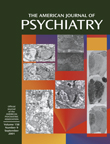To the Editor: Dr. Jelicic is correct that performance on some tests can improve simply as a result of taking the test a second time. This effect is particularly marked on a test that requires a subject to figure out a strategy to perform well. Part of the first test session is devoted to this effort. Once an effective strategy is developed, performance improves. If this knowledge is carried over to the repeated test session, overall performance will be greater on retesting. Improvement with repeated testing can also be marked when the same test items are used on the two test days, for obvious reasons. It is also known that improvement between the first and second administrations of a repeated test is greater than the improvement between subsequent administrations (first-time effect). Finally, improvement with repeated testing is greater when the time between test sessions is shorter.
There are multiple reasons to have confidence that the improvements seen in our patients were not due to simple repetition of the outcome measures. First, the serial-position tests of working memory that were used to measure outcome were fully explained before testing but did not require the subjects to figure out the key to problem solving and did not make use of the same test items on different days. (The same word lists were used, but the order of the items at each trial was randomly generated.) Second, the subjects were tested twice on each test at baseline before training, precisely to separate any first-time effect from the treatment effects. Moreover, the two baseline administrations were much closer together in time (1 week apart) than were the baseline and posttreatment tests (10 weeks apart).
The third reason to have confidence in our results is the data itself. For example, one patient received two blocks of training (durations of 5 and 10 weeks), was tested every 2 weeks between the two training blocks (four testings), and was tested for 10 weeks after the second training block (five testings). On the five-word serial-position tests, his second baseline test score was a little lower than his first (i.e., no improvement with repeated testing). At his next testing, after 10 weeks of training, his performance was 50% better than his average score on the baseline tests.
His performance did not improve over the course of the four test administrations between the training blocks or over the five tests after the final training block on any of the three verbal serial-position tests. In contrast, his performance increased dramatically on all three tests after each training block (for 50%–70% total improvement). Thus, multiple comparisons of repeated test scores without intervening training failed to show any evidence of improved performance, whereas all comparisons of test scores before and after training showed marked improvement.

